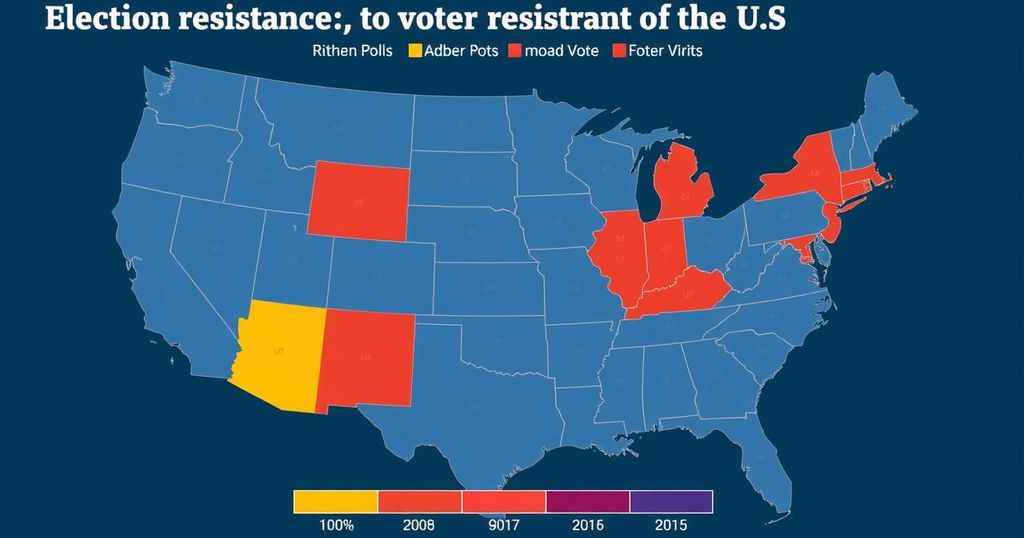Voters across the United States rejected significant election reform measures, including ranked choice voting and open primaries, despite over $110 million in advocacy funding. The failures occurred in states of varying political leanings, indicating a broader reluctance among voters to adopt such reforms. Advocacy groups are now re-evaluating their strategies, recognizing the need for grassroots support and voter education before initiating future campaigns.
In the recent elections across the United States, voters soundly rejected numerous proposed election reforms despite a substantial investment of over $110 million from reform advocates. Initiatives advocating for ranked choice voting and open primaries were turned down in several states, including Arizona, Colorado, and Nevada. Activists, optimistic prior to the elections, are now reassessing their strategies following the failures, emphasizing the need for grassroots support rather than relying solely on promotional efforts.
The election reform movement aimed to disrupt traditional voting methods by introducing open primaries that would include candidates from all parties on a single ballot. Ranked choice voting would allow voters to express preferences for multiple candidates, redistributing votes if necessary. With the advocates having significant resources at their disposal, the widespread rejections indicate a lack of readiness among voters to adopt such changes, leading to contemplative discussions within the advocacy community on how to approach future initiatives.
Historical context reveals that some states previously embraced these reforms, such as Alaska in 2020, where a combination of open primaries and ranked choice voting was approved. However, Nevada’s reversal this year demonstrates the unpredictability of voter sentiment. Opponents of these reforms argue that traditional voting methods are preferable, contributing to the significant pushback against the reform efforts. Academic analysis further complicates the picture, indicating that ranked choice voting may not substantively alter election outcomes.
Compounding these issues, instances of confusion among voters have been noted, with significant numbers opting not to participate in certain races during the ranked choice voting elections. Observers maintain that addressing the concerns of diverse voter demographics and enhancing understanding around new voting methods will be essential in future attempts.
Conclusion: The recent electoral outcomes highlight a substantial rejection of ambitious election reform initiatives aimed at modernizing voting systems. The significant financial backing contrasted sharply with voter reluctance to adopt changes, prompting advocates to reassess their strategies for future reforms. Attention will need to focus on building grassroots support and educating voters to enhance acceptance of such systems.
The topic of election reform has gained traction in various states, as advocates push for changes like ranked choice voting and open primaries to provide voters with more options and reduce partisanship. However, in the recent elections, despite considerable financial contributions totaling over $110 million from reform proponents, voters displayed resistance. Many initiatives faced defeat, prompting a reevaluation of strategies by advocacy groups, who now recognize the necessity of cultivating local support prior to launching large-scale campaigns.
In conclusion, the recent rejections of election reform measures underscore a widespread hesitance among voters in the United States to embrace substantial changes to established voting systems. With a significant financial investment failing to translate into electoral success, advocates must rethink their tactics, focusing more on grassroots engagement and education rather than relying on expansive advertising campaigns. The path to reform may necessitate a more gradual approach, considering the diverse opinions and experiences of the electorate.
Original Source: apnews.com






